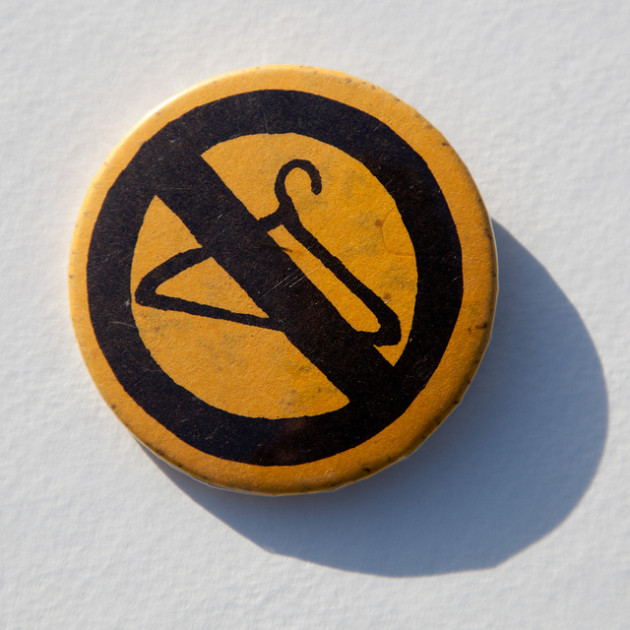
by Amelia Dornbush
How One TV Show Helped Me Better Understand Abortion

Photo Credit: Robert Couse-Baker
There is a scene in season five of Scandal when the protagonist Olivia Pope gets an abortion. She does not tell her then-boyfriend Fitz about her decision. In fact, the entire scene happens without her saying a word. Aretha Franklin’s “Silent Night”—with words such as “all is well, all is right”—plays in the background. Though the presentation of abortion was not without a few flaws, on the whole it was incredibly powerful, and personally empowering. As I was watching the show, it occurred to me this was one of the few times I had seen an abortion on TV (another had been in an earlier episode of the same show.) Though I have never had an abortion, I didn’t realize how badly I needed to see positive depictions of the procedure until it was in front of me.
When I was a kid, I was very much a rule-follower. I had an anxiety attack over the fact that in science club we changed the color of a penny when I found out that there was a law banning defacement of US currency. My stomach actively tied itself into knots whenever FBI copyright warnings came on TV lest I should potentially violate their edicts. I got good grades and stayed out of trouble.
How I learned to break the rules is a different story for a different time, but a side effect to my non-rebellious decades is that I deeply internalized societal stigmas no matter what I might abstractly have believed politically. This manifested in many different arenas—my attitude towards drinking (others could, I couldn’t) and therapy (same)—and in my attitude about abortion.
I was raised in a liberal environment by liberal parents. As early as sixth grade, I remember passionately defending a woman’s right to choose. But the idea of getting an abortion terrified me. It wasn’t because I didn’t have the funds to get an abortion or couldn’t access of a clinic. Instead, I was afraid because I had internalized that getting an abortion was a Big Deal. That if I were to need one I would have Messed Up Big Time. And that, quite frankly, I should probably be like the lead character in Juno and have the baby anyway. For awhile, even though I was proudly pro-choice, I was pretty sure that if I were ever to get pregnant, I’d end up having to go through with it. I abstractly believed in the idea of choice, but somehow didn’t believe it applied to me.
It wasn’t until I was 23 living and working in North Carolina that suddenly the pin dropped. “So what?” my friend asked me after listening to my tirade of paranoia, likely either about my IUD malfunctioning or my fear that I was pregnant despite not having had sex since my last period, or both. “You can always just get an abortion.” We were both on the same fabulous health care plan at the time so cost wouldn’t be a concern. Granted, North Carolina has draconian restrictions on abortion, so it wouldn’t have been as simple as just getting an abortion, but that wasn’t the point. The point was that to my friend, abortion was not a Big Deal. It was a thing you should be able to do to look after your body if you needed to. It was the first time that I had heard abortion being talked about in a concrete and personal way without whispered tones. Abortion was a medical procedure I could have. It was something that could be casual, and certainly never would be shameful.
Chanel Dubofsky writes about unlearning abortion stigma in one of Lilith’s most read articles of all time, and I can feel that process taking place in myself. Every time I shout “My Body, My Choice” I get a step closer to believing it. So too do I get closer when I hear the echoed chant from those in the audience without uteruses saying “Their Body, Their Choice.”
In the season five finale of Scandal, Olivia’s ex-boyfriend accidentally finds out she had an abortion. We’re expecting there to be a major fight and confrontation scene. Instead, without ever bringing up the subject directly, Fitz tells her completely sincerely: “I respect your choice, not that you need my support.”
If only every other message about abortion was so respectful of women’s bodily autonomy.
The views and opinions expressed in this article are the author’s own and do not necessarily reflect those of Lilith Magazine.